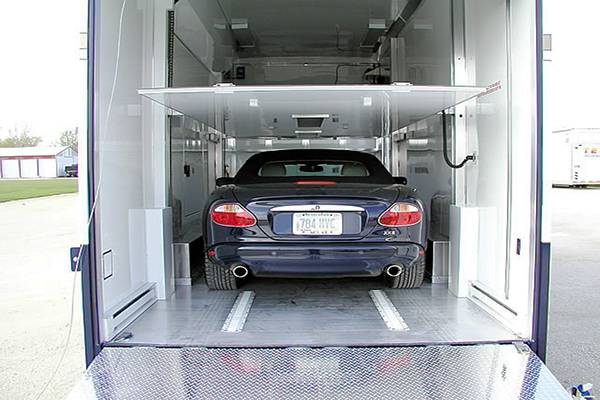Introduction To Shipping Costs For Electric Cars
Shipping an electric car involves a complex array of costs that can significantly impact the overall expenditure for both manufacturers and consumers. Understanding these costs is crucial for anyone involved in the automotive industry, from individual buyers to large-scale distributors. The shipping process encompasses multiple stages, each with its own set of financial considerations. From the initial transportation from the factory to the port, through international shipping logistics, to final delivery at a dealership or customer’s doorstep, every step requires careful planning and expense allocation.
One primary factor influencing shipping costs is the distance between the point of origin and destination. Longer distances naturally entail higher fuel consumption and labor costs, which are often passed on to the consumer. Additionally, international shipments may involve customs duties and import taxes that vary by country. These fees can add substantial amounts to the overall cost depending on local regulations.
Another significant aspect is the mode of transportation used—whether by sea freight, air freight, or land transport via trucks or trains. Each mode has its own pricing structure; for example, air freight is generally faster but considerably more expensive than sea freight. Furthermore, specialized equipment such as climate-controlled containers may be required to ensure that electric vehicles (EVs) are transported safely without damaging sensitive components like batteries.
Insurance also plays a vital role in shipping costs. Given the high value of electric cars, comprehensive insurance coverage is essential to protect against potential damages during transit. This added layer of financial protection further increases total expenses but provides peace of mind.
In summary, shipping an electric car involves multiple layers of cost considerations—from distance and transportation mode to customs duties and insurance—each contributing to the final price tag associated with bringing these innovative vehicles from manufacturer to market.
Types Of Shipping Methods And Their Costs
When considering the shipment of an electric car, the type of shipping method chosen plays a significant role in determining overall costs. Broadly, there are two primary methods: open transport and enclosed transport. Each comes with distinct advantages and pricing structures that potential shippers should carefully evaluate.
Open transport is the most common and cost-effective method for shipping an electric car. This approach involves placing the vehicle on an open trailer, where it is exposed to the elements but securely fastened for transit. The affordability of this method stems from its widespread use and efficiency; multiple vehicles can be transported simultaneously, reducing individual costs. Typically, rates range from $500 to $1,500 depending on factors such as distance, vehicle size, and demand.
Conversely, enclosed transport offers a premium service designed to provide maximum protection for high-value or delicate electric cars. In this scenario, vehicles are housed within a fully covered trailer that shields them from weather conditions and road debris during transit. While this method ensures superior safety for the vehicle’s exterior and interior components, it comes at a higher price point. Enclosed shipping generally costs between $1,000 and $3,000 based on similar variables like distance and vehicle dimensions.
Additional considerations impacting shipping costs include door-to-door versus terminal-to-terminal delivery options. Door-to-door service typically incurs higher fees due to the convenience factor of picking up and delivering directly to specified locations. Meanwhile, terminal-to-terminal service might be more economical but requires owners to drop off and collect their cars at designated hubs.
Understanding these methods allows shippers to make informed decisions that balance cost with desired levels of protection for their electric vehicles during transit.
Factors Affecting Shipping Costs
Shipping an electric car involves a myriad of factors that can significantly impact the overall cost. One of the primary determinants is the distance between the origin and destination. Generally, longer distances incur higher shipping fees due to increased fuel consumption, labor costs, and potential accommodation for drivers during extended trips. Additionally, international shipping introduces complexities such as customs duties, tariffs, and import taxes which can further inflate costs.
The size and weight of the vehicle also play critical roles in determining shipping expenses. Electric cars tend to be heavier than their internal combustion counterparts due to their substantial battery packs. This added weight can affect transportation fees since carriers may charge more for heavy loads that demand greater energy expenditure and potentially specialized equipment.
The method of transport chosen—whether by sea, air, or land—also greatly influences costs. Shipping by sea is typically more economical but slower compared to air freight, which offers speed at a premium price. Overland transport via trucks or trains strikes a balance but is contingent on accessible routes and infrastructure.
Seasonality can also affect shipping costs; peak seasons often see higher rates due to increased demand for transport services. Additionally, fluctuations in fuel prices directly impact transportation expenses as carriers adjust their rates accordingly.
Moreover, specific requirements such as enclosed transport versus open-air options can influence pricing. Enclosed carriers provide better protection against environmental elements and potential damage but at an additional cost.
Insurance coverage is another essential factor since it safeguards against potential damages during transit but adds an extra layer of expense. Lastly, logistical considerations like pick-up location accessibility and delivery conditions can either mitigate or exacerbate shipping charges depending on their complexity.
Understanding these multifaceted elements helps in anticipating the comprehensive costs involved in shipping an electric car efficiently and economically.
Packaging And Handling Fees
Packaging and handling fees are critical components in the overall cost structure of shipping an electric car. These fees cover a range of services necessary to ensure that the vehicle is adequately prepared, protected, and managed throughout its journey. The process begins with the preparation of the electric car for shipment. This involves draining any hazardous fluids, securing loose parts, and disconnecting the battery to prevent any electrical issues during transit.
Once the vehicle is prepared, it must be packaged appropriately. Packaging often involves placing the electric car in a specially designed container or on a transport pallet that can accommodate its size and weight while providing sufficient protection against potential damage. Protective materials such as padding, straps, and covers are used to safeguard delicate components from shocks and vibrations during transportation.
Handling fees encompass the labor costs associated with these preparatory steps as well as additional services such as loading and unloading the vehicle onto various modes of transport—be it ship, plane, or truck. Skilled personnel are required to maneuver these heavy vehicles safely without causing damage either to the car or other items being shipped.
Moreover, handling fees also cover administrative processes like documentation and customs clearance if international shipping is involved. Proper documentation ensures compliance with regulatory requirements which can otherwise result in delays or penalties.
In summary, packaging and handling fees serve not only to protect your investment but also facilitate smooth logistics from point A to point B. These costs may seem ancillary but they play an indispensable role in ensuring that your electric car reaches its destination safely and intact.
Insurance Costs For Electric Car Shipping
When shipping an electric car, one of the critical components to consider is the insurance cost. Insurance costs for electric car shipping can vary significantly based on several factors, and understanding these can help you make an informed decision.
First and foremost, the value of the electric vehicle (EV) plays a pivotal role in determining insurance premiums. Higher-value vehicles typically incur higher insurance costs due to the increased financial risk for insurers. Electric cars often come with advanced technology and high-cost batteries, which can drive up their value compared to conventional vehicles.
The distance of transport also affects insurance costs. Shipping a car across long distances or internationally increases exposure to potential risks such as accidents, theft, or damage during transit. Consequently, longer hauls generally result in higher insurance premiums.
Another factor influencing insurance costs is the chosen method of transport. Open carrier shipping is less expensive but exposes your EV to external elements like weather conditions and road debris, increasing potential damage risks. Enclosed carrier shipping offers more protection but comes at a premium price due to its added security benefits.
Moreover, the specific route taken can also impact insurance rates. Certain routes may be deemed riskier due to factors such as high traffic congestion or adverse weather conditions commonly encountered along those paths.
It’s essential to scrutinize what coverage your chosen shipping company includes in its standard package and whether additional coverage is necessary. Comprehensive coverage might be worth considering for peace of mind, ensuring that any eventualities are adequately covered without incurring out-of-pocket expenses later on.
In conclusion, while insuring an electric car for shipment may seem like a straightforward task, various nuanced factors contribute to the overall cost. A thorough understanding of these aspects will enable you to navigate through options effectively and choose the best possible coverage for your valuable EV.
Customs Duties And Import Taxes
When shipping an electric car across international borders, customs duties and import taxes represent significant costs that must be carefully considered. These charges are typically imposed by the destination country and vary widely depending on local regulations, trade agreements, and the vehicle’s value. Understanding these financial obligations is crucial for accurately estimating the total cost of shipping.
Customs duties are tariffs levied on goods transported across international borders. For electric cars, these can range from a minimal percentage to substantial figures based on the car’s declared value, including its purchase price and any additional accessories or modifications. The purpose of these duties is to protect domestic industries by making imported goods more expensive compared to locally produced alternatives.
In addition to customs duties, import taxes are another critical expense. These taxes can include Value Added Tax (VAT), Goods and Services Tax (GST), or other similar levies specific to the importing country. For instance, in the European Union, VAT rates generally hover around 20%, applied not only to the car’s value but also to shipping costs and customs duties themselves.
This cumulative effect can significantly inflate the overall expense.
Certain countries may offer reduced rates or exemptions for electric vehicles as part of their environmental policies aimed at reducing carbon emissions. However, such incentives vary greatly from one jurisdiction to another and may come with specific eligibility criteria that need thorough research.
Navigating through this intricate web of customs duties and import taxes necessitates a comprehensive understanding of both origin and destination countries’ regulations. Consulting with customs brokers or freight forwarders who specialize in automobile transport can provide valuable insights into potential costs and help streamline the process, ensuring compliance while optimizing expenses involved in shipping an electric car internationally.
Additional Charges And Hidden Fees
When shipping an electric car, there are several additional charges and hidden fees that can significantly impact the overall cost. One of the primary factors is the distance between the pickup and delivery locations. Longer distances generally incur higher transportation costs due to increased fuel consumption, time, and potential wear and tear on the transport vehicle. However, it’s not just about mileage; remote or hard-to-reach destinations might also involve extra fees for their accessibility challenges.
Another critical aspect is insurance coverage. While basic insurance might be included in the initial quote, it often offers limited protection. To ensure comprehensive coverage that protects against potential damages during transit, you may need to purchase supplemental insurance at an additional cost. This becomes particularly important given the high value of electric vehicles.
Seasonal variations can also influence pricing. During peak seasons like summer or holidays when demand for shipping services rises, prices tend to be higher due to limited availability of carriers and increased operational costs.
Moreover, expedited shipping requests typically come with premium charges. If you require your electric car to be delivered within a shorter timeframe than standard delivery schedules allow, prepare for a steep increase in price.
Special handling requirements specific to electric cars may incur further costs as well. For instance, if your vehicle has a low ground clearance or requires enclosed transport to protect its delicate electronics from weather elements and road debris, these specialized services will add to your bill.
Finally, administrative fees such as customs duties for international shipments or additional paperwork processing can subtly inflate overall expenses without immediate transparency in initial quotes. Being aware of these potential additional charges and hidden fees helps in making more informed decisions when budgeting for shipping an electric car.








